4 Hip Flexor Stretches That Relieve Pain and Tightness
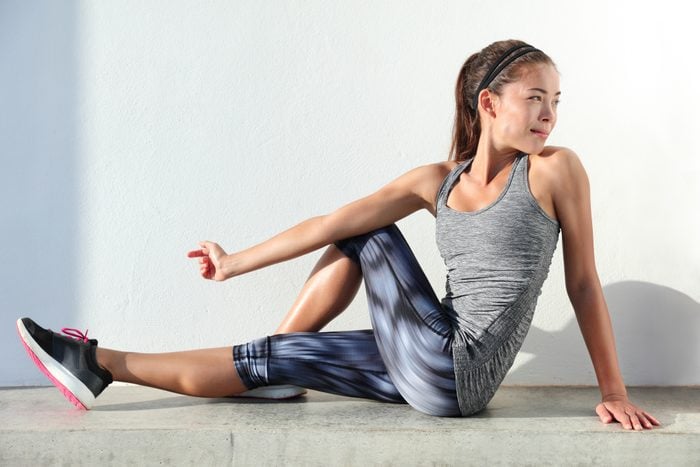
If you spend most of your day sitting, use these expert-recommended hip flexor stretches to alleviate low back pain and hip tension.
If your day can pretty much be summed up as time shuffled between long hours spent sitting at your desk at work, sitting in your car, and sitting in your house, there’s a good chance your hip flexors have become short and tight. Don’t feel bad, you’re not alone. You, and millions (if not billions) of people around the globe deal with this natural side-effect of modern life.
The trick is to catch it—and fix it—before you develop irritation, pain, or injuries related to changes in the range of motion at your hips. You can do this by incorporating hip flexor stretches into your daily routine.
(Related: 4 Expert Tips You Need to Know to Stretch Properly)
The hip flexors keep you moving
Hip flexors—the muscles that run along the front of your hips, connecting your pelvis to your thighs—are responsible for hip flexion. So, whenever your hip is moving into (or remains stationary in) a flexed position, your hip flexors are doing their jobs. “The hip flexors are a major mover of the legs, so if you’re moving, you’re using your hip flexors,” says Marian Barnick, a registered kinesiologist and movement expert practicing in Toronto. “The problem stems from overuse of the hip flexors.”
Just sitting all day can lead to overuse
While you may think of “overuse” as doing too much strenuous activity (which it certainly can be) in the case of the hip flexors, “overuse” can simply mean remaining in a seated, hip-flexed position for an excessive period of time. This type of overuse can lead to misalignments and muscle imbalances between the hip flexors, glutes, quads, and hamstrings, all of which can pull on the pelvis and low back, leading to pain and injuries. “When the hip flexor muscles are tight they cause increased tension on the low back,” Barnick says. “The psoas muscle, part of the hip flexors, attaches to the vertebrae in the low back. Constant tightness of the psoas pulls on the low back causing poor body alignment and long-term pain and change in function.”
While there can be many causes of low back pain, it’s important to understand that tight hip flexors could be part of the problem. That’s why it’s incredibly important to counteract any prolonged, flexed-hip position with hip extension. Luckily, it’s easy to incorporate hip flexor stretches into your day-to-day life.
(Related: 4 Chest Stretches to Help Improve Posture and Reverse Slouching)
Stretches for your hip flexors
Hip flexor stretches can be performed standing, kneeling, or even lying down on an elevated surface (like a bed), so you can add a stretch no matter where you are or what you’re doing.
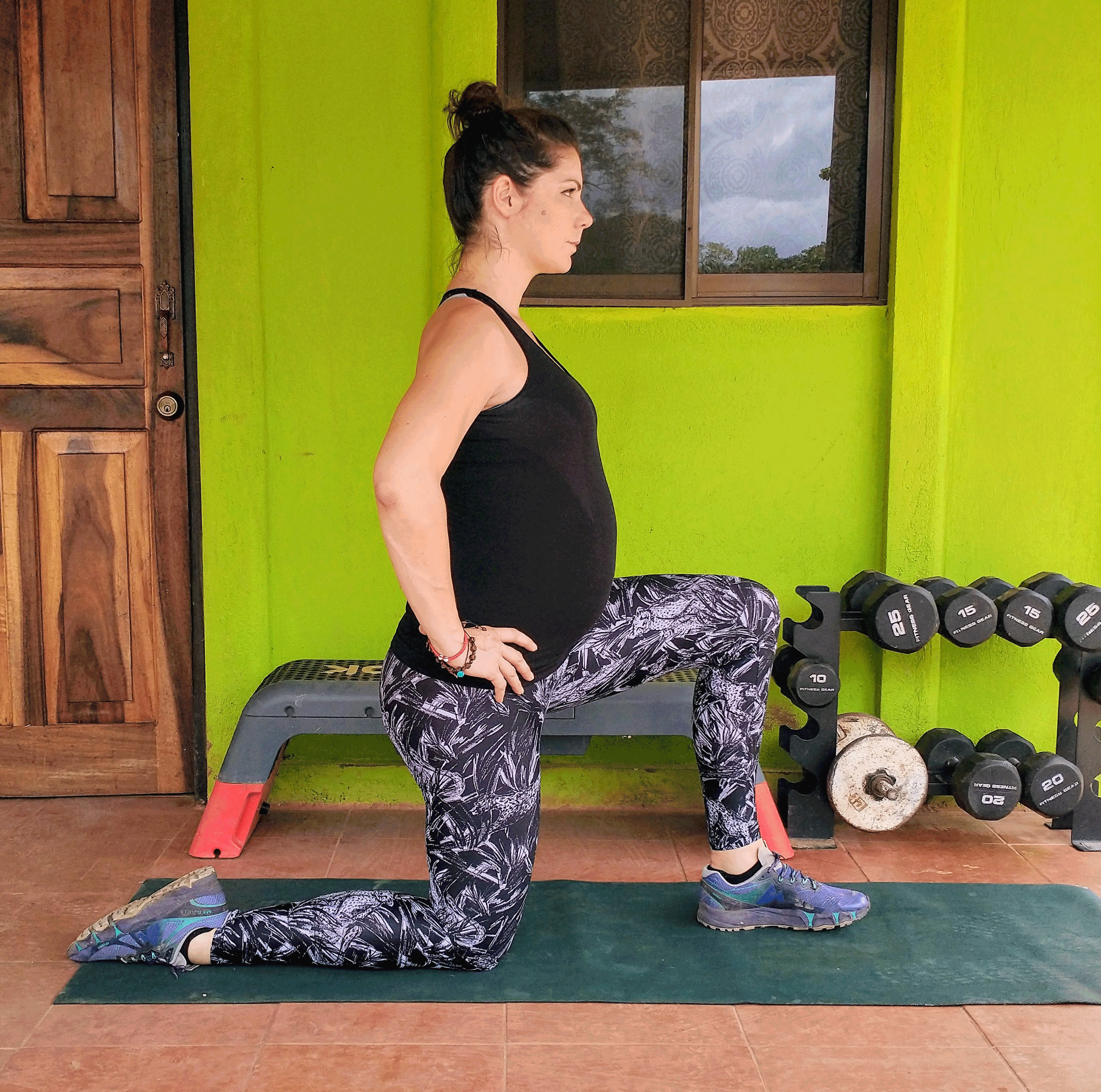
Kneeling hip flexor stretch
Kneel on a mat as though you were about to propose to someone—your left knee aligned under your hip, your right foot planted in front of you so your right knee and hip are bent at 90-degree angles. Check your posture—your core should be engaged, and your ears should be “stacked” over your shoulders, hips, and left knee.
This upright position is critical, as you need to keep the hip flexor you’re stretching (in this case, the left one) fully extended before moving it into a slight hyperextension to help counteract the more common hip flexion. From this position, take a breath in, and as you exhale, press your hips forward while keeping your torso tall. Your left hip will move into a slight hyperextension.
When you feel a stretch through the front of your left hip, stop and hold the position for 30 seconds. Release, then repeat two more times before switching sides.
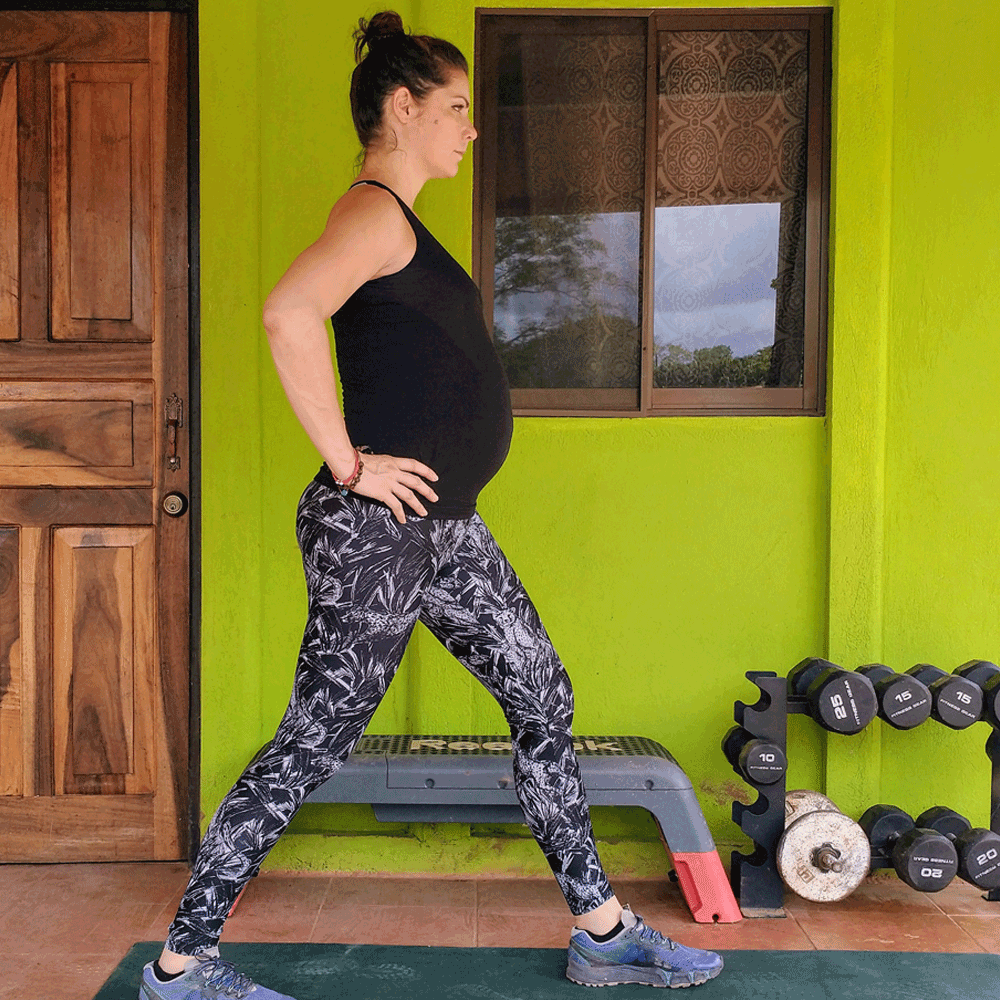
Standing hip flexor stretch
The standing hip flexor stretch is almost identical to the kneeling version, but you’re performing the stretch from a standing position. Stand tall, your feet hip-distance apart, with perfect posture. Engage your core and “stack” your ears above your shoulders, hips, knees, and ankles. From this position, take a step forward with your right foot so you have a slight bend in both knees, and both feet are fully planted on the floor.
Your torso should remain straight and tall, aligned evenly between both feet. From here, tuck your tailbone under and press your hips forward, keeping your left heel down.
When you feel a stretch through the front of your left hip, hold the position for 30 seconds.
Release, step back to the starting position, and repeat to the opposite side.
Complete three total sets per side.
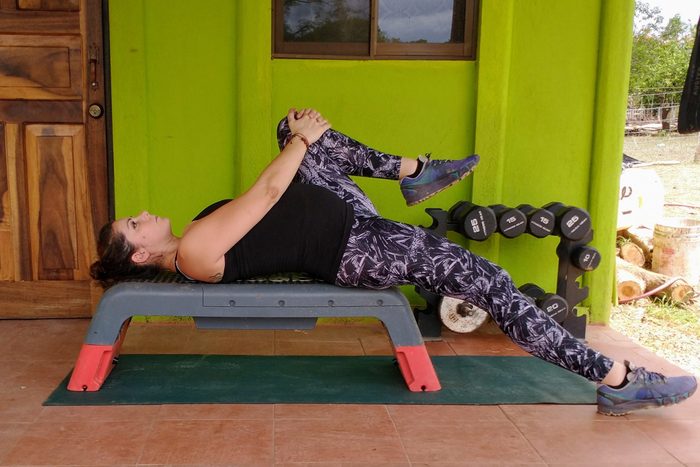
Supine hip flexor stretch
The supine hip flexor stretch is a good one to perform at the gym on a bench, before you get out of bed in the morning, or even while relaxing on the couch. Lie flat on your back on an elevated surface, positioning yourself so your right shoulder and hip are close to the right edge of the bed or bench. Bend your left knee and place your left foot flat on the bed or bench. Extend your right leg with your right foot and knee off the right side, touching your foot to the ground.
This alone may offer a nice stretch through the front of your right hip. If you can’t do more, stay here, remaining in the stretched position, relaxing your right leg for 30 seconds. If you can comfortably stretch further, use your arms to draw your left knee to your chest as you relax your right hip flexor, allowing it to slowly and steadily enjoy a deeper hyperextension.
When you feel a good stretch, hold the position for 30 seconds. After 30 seconds in your stretched position, return to the starting position, then repeat two more times before switching sides.
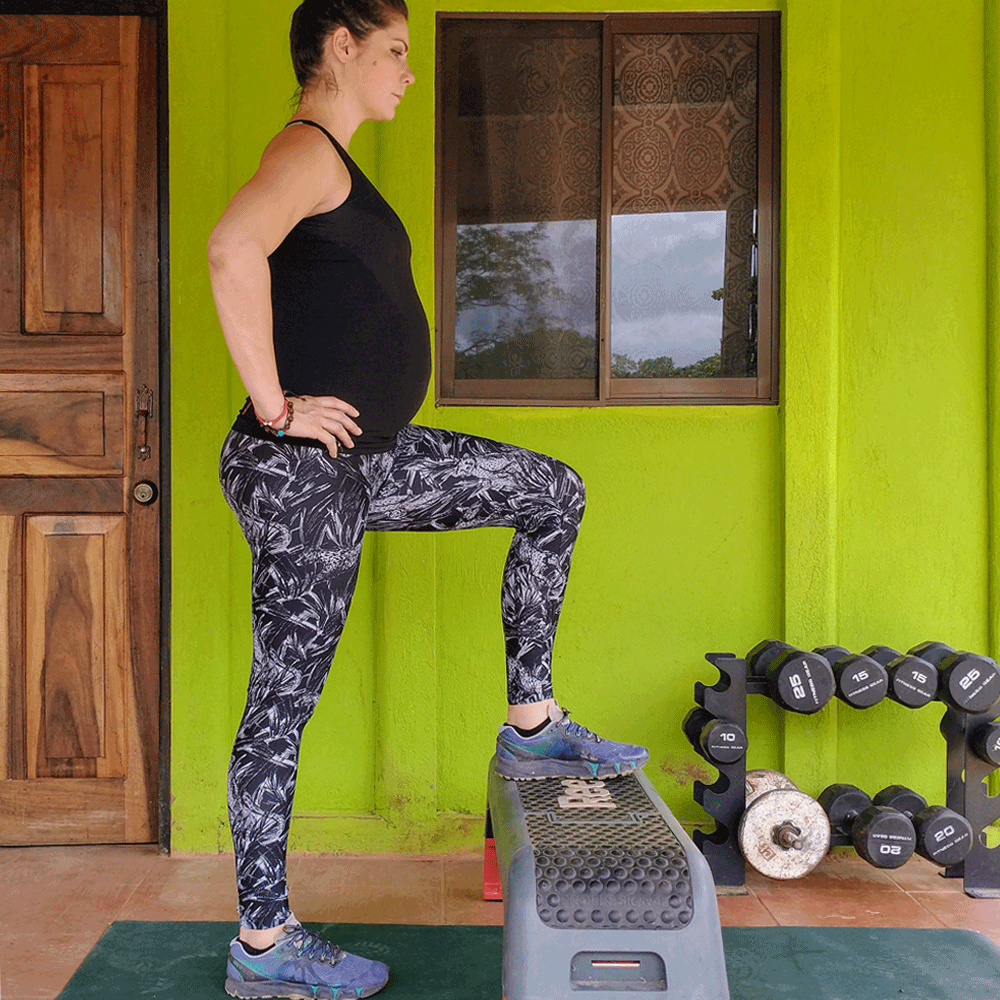
Hip flexor step up
The hip flexor step up is very similar to the standing hip flexor stretch, but may be easier for those with very tight hips. Stand facing a bench, sturdy chair, or high step with perfect posture. Engage your core and make sure your ears are “stacked” above your shoulders, hips, knees, and ankles.
Step up onto the bench with your right foot, planting it squarely on the surface so your entire foot is supported. Keeping your left heel down, press your hips forward until you feel a stretch through the front of your left hip.
Hold for 30 seconds before releasing and repeating the exercise to the opposite side.
Complete a total of three rounds per side.
Next: 9 Benefits of Stretching That Will Convince You to Do It Daily




